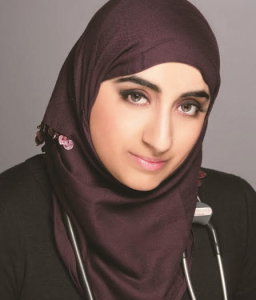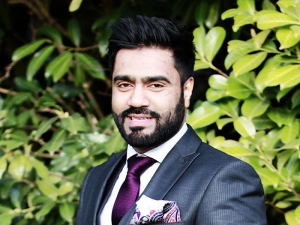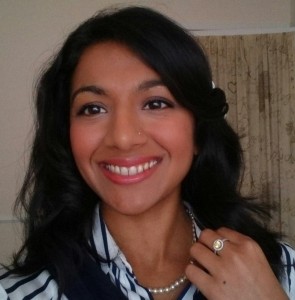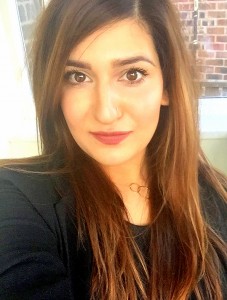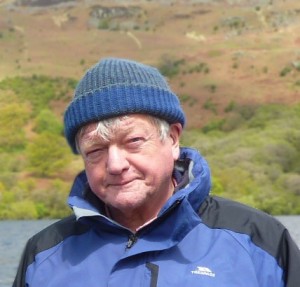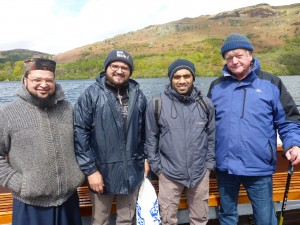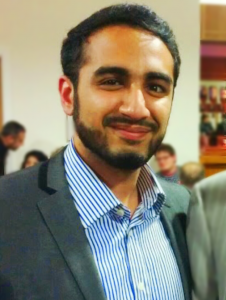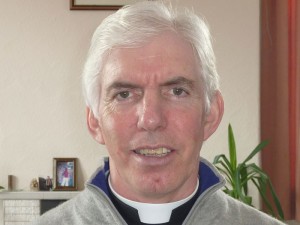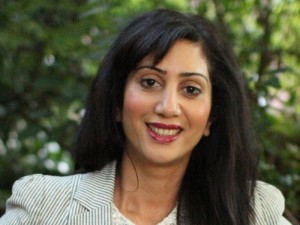Alhamdulillah, I got the opportunity to Share Ramadan again this year. Last year, I had tentatively reached out to friends and was overwhelmed with the positivity of their response, so this year I booked it into my Ramadan schedule quite early on! My numbers increased from four to eight, and this time two of whom decided to do the fast with the 2am sehri start – Mashallah, they made it all the way through the long and unexpectedly hot day.
When asked if I could share some thoughts on my experiences from both years, it got me thinking as to what I could write about, given that I had shared my first-time experience in quite some depth last time. It was around then that I experienced something that made me think about how sometimes, in our eagerness to share our beautiful faith, we may potentially have the opposite effect unwittingly. It is a delicate balance that we have to walk when we reach out, and there are several Do’s and Don’ts that I have followed, which I thought might be useful to others.
So here goes!
Firstly, DO clarify your intention. Remember, we should only be doing this to break down barriers between people; people are scared of what they don’t know – that is the root of all prejudice. Therefore, by inviting them to share part of our lives, we are just trying to show them what we do and why, and that it’s really not all that strange or difficult! And if you really want to get a bonus out of sharing Ramadan, then make the intention that you’re doing it to please Him! That He wants us to share the blessings of this month with all around us, and not just our Muslim brothers and sisters. Remember, the ayah about Ramadan and the Quran says “guidance to mankind”, not just Muslims!
In the same vein then, DON’T, please DON’T make this about converting anybody! That is not our intention and should not be, as it will colour everything we do and say on the evening. I know I don’t like it when I get the knock on the door by the evangelicals who are clearly out to ‘save us’ – I don’t need saving thank you very much and I’m sure none of the people who are accepting your generous invitation feel like they need saving either. Once again, the example of the Prophet comes to mind, who for forty years simply lived amongst the people and showed them by example how to be the best person possible. If, if, someone is interested in knowing more, they will let you know I’m sure. Then, and only then, should we guide them down that path, Inshallah. Until then, let’s keep our Islam-talk to a minimum, or led by their initiative.
When you extend the invitation, DO make it as flexible as possible. As I mentioned above, only two of them did the proper no food and drink fast for the full timings. I invited all of them to partake in whatever way they felt feasible for them, suggesting fluids only, or having breakfast and then fasting. I even invited some to just come even if they couldn’t fast – which two of them did too, as they felt they weren’t able to fast with a long day of work. It all goes back to the intention – for me, it was enough just to spread the awareness of what we do and why, and invite them into my home to share a meal and talk. We Muslims have motivation to fast in that it is compulsory – and yet many of us feel overwhelmed by the thought of doing it in the long summer days! So I didn’t want to offer something unattainable on the plate, and then have them refuse.
At the same time, DO prepare them for what to do, and what it may be like. I sent my friends an email with suggestions for what to do the night before (hydrate well), things to eat that release energy slowly throughout the day (porridge and banana), and suggested setting aside some time to rest during the day if possible. I also sent them some articles on the health benefits of fasting, and blogs by other non-Muslims who had tried it before. Fasting has some very real physical effects, especially when you’re just starting and especially if you haven’t done it before. So I also sent them a little paragraph on what to expect, including potential headaches and bad breath! I found this useful for myself also, so am sharing it here for all of you:
Detoxification Stage 1 (Day 1 to Day 2)
On the first day of fasting, the blood sugar level drops. The heart slows and blood pressure is reduced. Glycogen is pulled from the muscle causing some weakness. The first wave of cleansing is usually the worst. Headaches, dizziness nausea, bad breath, and a heavily coated tongue are signs of the first stage of cleansing. Hunger can be the most intense in this period.
Lastly, I told them that if they were feeling sick, under no circumstances whatsoever were they to continue with the fast. I feel that emphasising Allah’s mercy and that we are not to fast if we are unwell or unable is very important, especially given the fact that in the media, Ramadhan has been linked to more than a thousand deaths in Pakistan due to the heatwave. This is sadly more down to poverty and lack of water and electricity supply, but unfortunately also due to lack of awareness.
Again in the same vein, DON’T complain yourself! I feel it is so important to present this aspect of our faith not as an obligation we are reluctantly fulfilling, but as an honour and a privilege that we have been invited to. Indeed, isn’t Ramadhan a Divine Banquet, where Allah is the host, and we the blessed invitees? So yes, the fasts are long and hard, but there is a wisdom to that, and if you still feel blah about it, keep it to yourself! With the hottest day in the UK, many of my friends checked in with me during the day to see how I was faring, and I always tried to respond in the positive. During iftaar, the conversation about the end of Ramadhan came and I spoke about how the majority of Muslims are reluctant to let this beautiful month go. Anything to help share the beauty of our religion – God knows we have enough people out there spoiling its name already!
Moving forward, they’ve fasted and are now gathered at yours to eat. Please, please, DON’T serve up too much unhealthy food! By all means, make it a special meal, but remember that fasting is about both – spiritual and physical change. In recent years, Alhamdulillah, there has been more of a shift to move away from our cultural traditions of fried and fatty foods (am coming from an Asian background here!) to more of what the Prophet would have actually eaten – healthy, unprocessed foods. The reason I am stressing this so much here is because it won’t be as easy to talk about the spiritual benefits of fasting with non-Muslims necessarily; yes, they may understand the empathy with the poor and hungry, the heightened charity focus in this month, and the need to practise will power, but many of the deeper spiritual aspects such as the focus on the Quran, on God-consciousness, on the heightened energy levels will probably be beyond them. However, the one common factor which can be easily understood and discussed and shared by all is the physical aspect of fasting. We had some great discussions over iftaar about the healing of the body that occurs during fasting (thus the random aches in our body), the burning of fats and cholesterol that kicks in starting from 8 hours into the fast and the release of the endorphins that happens once your body has adjusted to the fasts. So to experience all those awesome effects and then kill it with oily, fatty foods is just sending mixed signals to them! As Health Coach Soraya Janmohamed said, would you walk over a freshly mopped kitchen floor with muddy feet?! So let’s not do that to ourselves nor our friends either!
As a side note by the way, DO check for any dietary restrictions! This may sound common sense and you probably will do it anyways, but I made the mistake of thinking I knew what everyone ate who was coming – then when I served the food (main being chicken) and someone said they were vegetarian and thought I knew, I nearly had a panic! Luckily, I had a vegetarian option that I had kept for a vegetarian friend who didn’t end up coming so I quickly took that out, but if I hadn’t had that, it would not have been a good situation at all. Imagine making someone fast all day and then not having the right food to feed them – am not making that mistake again anytime soon…
Last but not least, DO enjoy yourself! Alhamdulillah, you have been given the tawfeeq (blessed opportunity) to share the blessings of this month. The Prophet has said: “Allah will give you the reward of feeding a fasting person even if you were to give him just a sip of milk, a date, or a sip of water. He who feeds a fasting person until he is full, Allah will make him drink out of my river, a sip of which will never allow him to be thirsty until he enters Jannah.” Inshallah may we all attain His pleasure through sharing Ramadhan, feeding fasting people, and building bridges with the non-Muslim community, all at the same time!
Shaheen Merali is the owner of a little (ad)venture called Buzz Ideazz, where she shares productzz and ideazz to help children love and live Islam from a young age. To view her blog and shop, check out www.buzzideazz.com and her facebook page: www.facebook.com/buzzideazz










